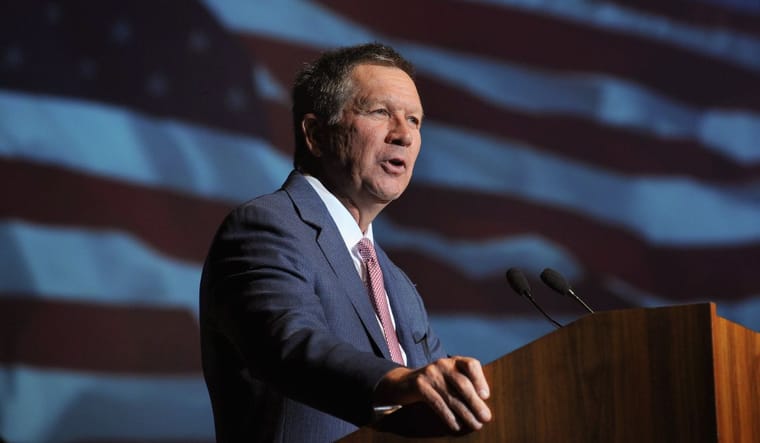Looking to Reinvent Yourself? This Advice Will Help You Unleash Your Wildly Authentic Life
As a leadership coach and the executive director of the Coach K Leadership & Ethics Center at Duke University’s Fuqua School of Business, Sanyin Siang knows a thing or two about what it takes to make a change.
Siang works with global executives and entrepreneurs and has a track record of breaking down silos and bridging divides. Throughout her career, she’s helped countless people reinvent themselves and has even done a bit of reinvention herself: Once a self-proclaimed introvert, Siang now talks to others for a living, regularly contributes to major outlets like Forbes and The Huffington Post, and is a LinkedIn Influencer with more than 1 million followers.
In her recent book, The Launch Book: Motivational Stories for Launching Your Idea, Business, or Next Career, Siang writes that even amidst great uncertainty and no matter how many obstacles seem to be in the way, we can all launch something new—fearlessly and boldly. The secret? Tapping into your superpowers and embracing a leadership mindset.
We sat down with Siang to learn more about how to step into a leadership role in our own lives, why it’s equally important to understand what makes us extraordinary as well as our growth points, and more.
A Conversation with Sanyin Siang
What’s your first piece of advice for anyone wanting to reinvent themselves or make even a few little changes in their lives?
Get to know thyself. Also, while it’s important to understand what you can improve, it’s equally essential to understand what makes you extraordinary. One thing I’ve learned working with high achievers is this: We often have more of an awareness of our areas for improvement, but less awareness of what makes us extraordinary. Once you figure out your differentiating strengths—your superpowers—that’s what you double down on.
When I’m working with a high-level influencer, leader, CEO, I’ll say something like, “Wow, this is something that makes you different—the way you connect the dots or remember stories and insights from others.” All too often this is a surprise to them! The trick to seeing your superpowers is to engage others. Reflect on all the mentors who really believed in you before you believed in yourself. Those people can help you see your superpowers.
You work with people who are at the top of their game. What’s one of the themes you see emerge in those who become most successful?
One of the patterns I see when I meet successful people is that they are kind and generous. They’re also engaging and curious about others; it’s not all about themselves.
Frances Hesselbein is a great example of this. She is the former CEO of the Girl Scouts of the USA and is the president and CEO of the Frances Hesselbein Leadership Forum at the Johnson Institute for Responsible Leadership. When you talk to Frances, she makes you feel like you are the most special person in the world. This is a trend among true leaders. They’re able to discover the awesomeness in others. And as a result of that, I think there’s also a deep sense of humility.
We all interact with people who trigger us—whether it’s a co-worker with toxic energy, a neighbor who pushes our buttons, or someone else in our lives. How would you coach someone who wants to rise above that noise?
We all tend to see things from our own perspectives. So, start by asking this: Who wakes up in the morning and says, “I want to be toxic” or “I want to make someone else’s life miserable” or “I want to be a failure today.” Nobody! When we can see things through that frame, we can say: “Oh, you’re struggling with something I can’t see.” And that can help you try to connect, relate, and understand where they’re coming from.
It’s also important to recognize that sometimes we may be the ones who bring out the negative in someone! I think it’s important to be mindful of that. The person triggering you may not be an equal opportunity jerk to everyone!
So, reach out to that person. Have a conversation. You might ask about their day, or how their family is doing. Look for moments of connection, suspend your judgment, really listen, and get curious.
Now, things may not turn out the way you want it to go. But at least you’re upping the probability.
If you’re a manager and have someone like this on your team, remove the obstacles in the way of them becoming their best selves. True inspiration is helping others see the possibility in themselves they haven’t seen. Once you have that trust and they know you have their good intentions at heart, then you can give them feedback couched in a lot of kindness.
You write about how even amidst great uncertainty, we can all move forward and launch fearlessly and boldly. How?
I think about one of the big words people talk about when it comes to uncertainty is resilience. Oftentimes, our understanding of resilience is based on how much individual resilience we have. It’s singular. But we are always more resilient as a team—as a community. The moment I start engaging those around me to say, “OK, here’s an idea I’ve been thinking about,” it helps me navigate uncertainty. It helps me realize that something doesn’t have to be perfect before I share it with the world.
Uncertainty is often a lack of data. So, go get that data! Before I publish any piece, I give it to my students to read. I ask them what resonates, what doesn’t, what they think, and why. I test out my thoughts before they go out into public. This way, launching something new isn’t a blind leap of faith. In the process of engaging others and running your ideas by your community, you’ve gained a whole bunch of insights about you, your place in the world, and how you can contribute to the world. And even if you decide not to launch, that’s OK. By not launching forward, you’re still moving in a new direction. You’re not standing still, you’re growing.
I also think it’s important to remember what I call the power of yet. As we move forward, we tend to play our mistakes over and over in our heads—but we don’t have to be shackled by them. I love this reframing of a Martin Luther quote: “We are not yet whom we shall become.” I also think we don’t have to be who we used to be. We can be better! The real failure is not changing, evolving, or growing.
Sanyin Siang, author of The Launch Book: Motivational Stories for Launching Your Idea, Business, or Next Career, has the secrets to building the skills you need to make your dreams a reality.
Please note that we may receive affiliate commissions from the sales of linked products.



